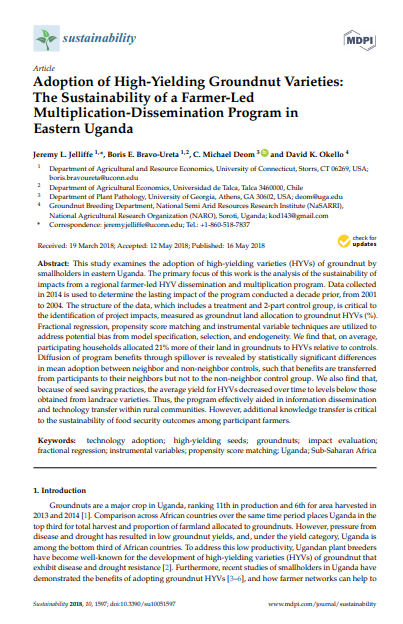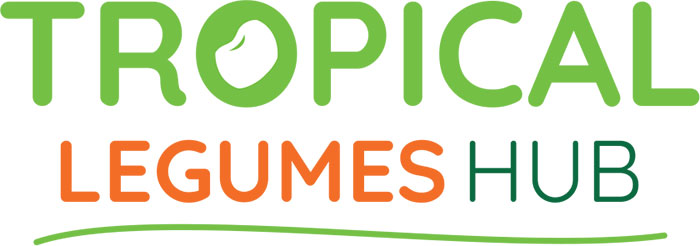Adoption of high-yielding groundnut varieties: the sustainability of a farmer-led multiplication-dissemination program in Eastern Uganda
Summary
This study examines the adoption of high-yielding varieties (HYVs) of groundnut by smallholders in eastern Uganda. The primary focus of this work is the analysis of the sustainability of impacts from a regional farmer-led HYV dissemination and multiplication program. Data collected in 2014 are used to determine the lasting impact of the program conducted a decade prior, from 2001 to 2004. The structure of the data, which include a treatment and 2-part control group, is critical to the identification of project impacts, measured as groundnut land allocation to groundnut HYVs (%). Fractional regression, propensity score matching, and instrumental variable techniques are utilized to address potential bias from model specification, selection, and endogeneity. We find that, on average, participating households allocated 21% more of their land in groundnuts to HYVs relative to controls. Diffusion of program benefits through spillover is revealed by statistically significant differences in mean adoption between neighbor and non-neighbor controls, such that benefits are transferred from participants to their neighbors but not to the non-neighbor control group. We also find that, because of seed-saving practices, the average yield for HYVs decreased over time to levels below those obtained from landrace varieties. Thus, the program effectively aided information dissemination and technology transfer within rural communities. However, additional knowledge transfer is critical to the sustainability of food security outcomes among participant farmers.
Open resource Download resource Access resource on external site

